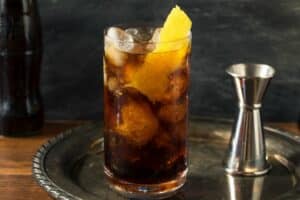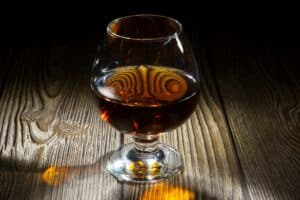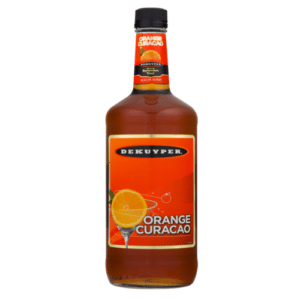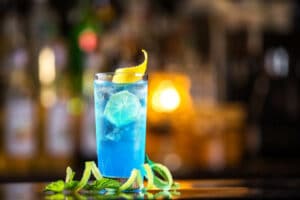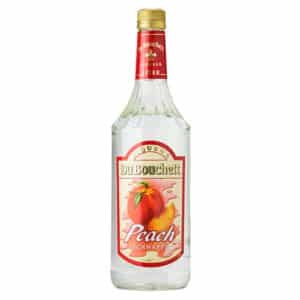The best Cointreau substitutes are triple sec, Grand Marnier, Curacao, orange liqueur, and orange extract. They all have one thing in common: orange flavor. However, each has different flavor notes that will bring variation to the drink or food item to which you add them.
Cointreau is an orange-flavored triple-sec liqueur from Saint-Barthelemy-d’Anjou, France. It was made popular in 1875, and still, over 13 million bottles per year are sold worldwide.
The liquor is a secret family blend of sweet and bitter orange peels containing pure sugar beet alcohol. Cointreau is popular as an after-meal digestif and is an ingredient in several cocktails, including margaritas and cosmopolitans.
The price, flavor, alcoholic content, and recipe can be deciding factors for what people use as a Cointreau substitute. We’ve taken all of these into account when determining the top five Cointreau alternatives.
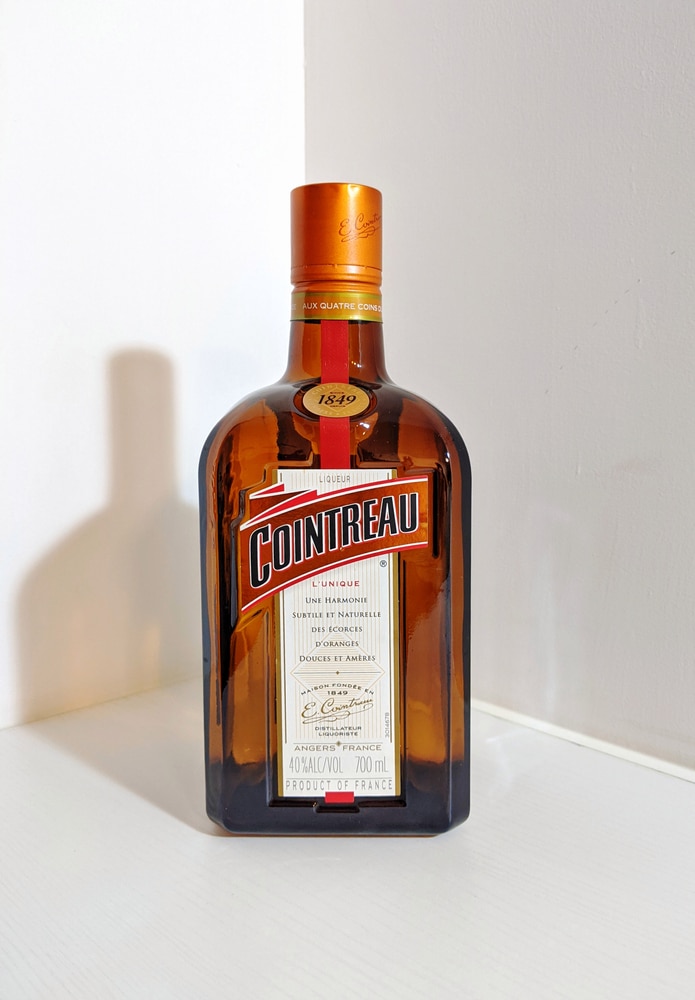
Recommended Cointreau Substitute
1. Triple Sec
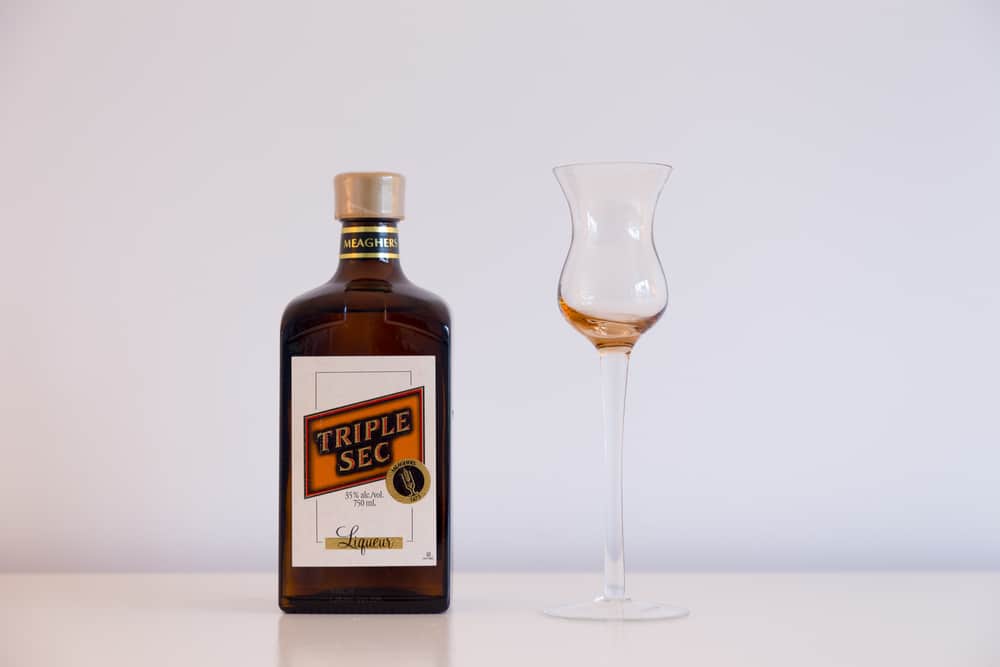
Cointreau is actually a type of triple sec liqueur, so triple sec is the most obvious choice for Cointreau substitutions. Triple secs got their start in 1834 in France, and the Cointreau brand first made their famous triple sec 41 years later in 1875.
Triple secs get their name from the three-step distilling process that happens after soaking sun-dried orange peels in alcohol for at least 24 hours.
Flavor Comparison:
Different triple secs have different flavor profiles, depending on which types of orange peels they use and other proprietary differences. Some are sweeter, while others have different citrus tastes.
In general, Cointreau tends to have a stronger, smoother, and more complex flavor than other triple secs. Its unique flavor is why Cointreau has remained popular for nearly 150 years, despite the competition.
Lightly-spiced versions like Luxardo Triplum can add different flavor signatures to an ordinary drink.
Best Substitute For:
Triple Sec is an excellent Cointreau replacement for cocktails and baking in equal quantities. You can substitute triple sec for Cointreau in drinks like cosmopolitans, margaritas, kamikazes, long island iced tea, and sidecars. Triple sec is also a great substitution for any dessert that calls for Cointreau.
Price Comparison:
Triple sec is fairly inexpensive at $3-$10 per bottle. When you compare the cost of Cointreau at $30-$40 a bottle, it’s easy to see why triple sec is a popular substitution for Cointreau. When other triple secs are 8% to 25% of the cost of Cointreau, many people go the cheaper route.
Alcohol Content Comparison:
Triple sec usually has anywhere from 15% to 30% alcohol content, but it sometimes has as much as 40% alcohol, which is the same amount as Cointreau. Most of the time, substituting triple sec for Cointreau will result in having less alcoholic content.
2. Curacao
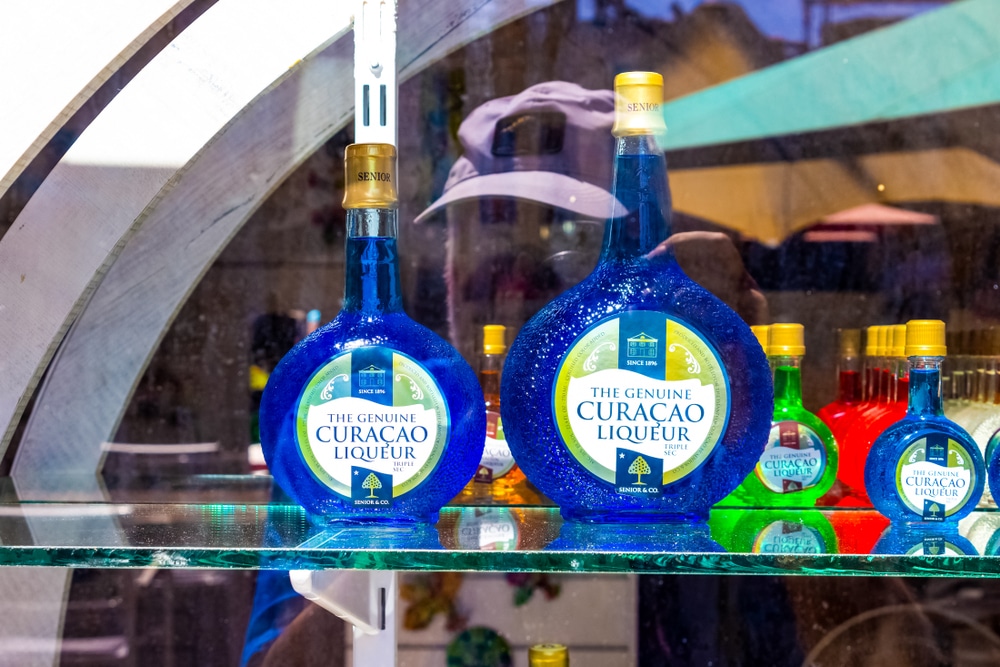
Curacao has been around longer than triple sec and is the liqueur that inspired triple sec’s creation a couple hundred years later.
Curacao’s base is the dried peel of an inedible bitter orange called laraha, which grows on the Dutch island of Curacao, just north of Venezuela. The Dutch originally macerated the peels in brandy, but the current producers usually use sugar cane alcohol.
There’s just one Curacao distillery on the island of Curacao today, Senior & Co., which has been around since 1896. They claim to be the only company still using lahara for their Curacao liqueur. The Bols distillery started making their Curacao drink the same year as Senior & Co., releasing a blue-dyed curacao in 1912.
Flavor Comparison:
Curacao is a sweet orange liqueur with a taste similar to triple sec. The main difference is that a good curacao has more of a bitter finish flavor than triple sec. Some brands taste more like flavored sugar water with just a hint of orange, so choosing a quality brand matters.
Clear curacao tastes the same as blue curacao, since the only difference is blue dye.
Best Substitute For:
Curacao can be a fun substitute for Cointreau in drinks in equal quantities, especially when using the blue version because it can change the drink from its ordinary color. Margaritas, cosmopolitans, sidecars, long island ice teas, and kamikazes turn colors ranging from electric ice blue to island sea green or even purple.
Curacao can also substitute for Cointreau in desserts. Using blue curacao can result in some colorful bright blue twists on ordinary orange-flavored desserts.
Price Comparison:
At $5 to $10 a bottle, Curacao costs 12% to 25% of the cost of Cointreau and about the same as triple sec.
Alcohol Content Comparison:
Curacao usually only has about 25% alcohol, so it makes a considerably weaker drink in alcohol content than Cointreau at 40% alcohol.
3. Grand Marnier Cordon Rouge
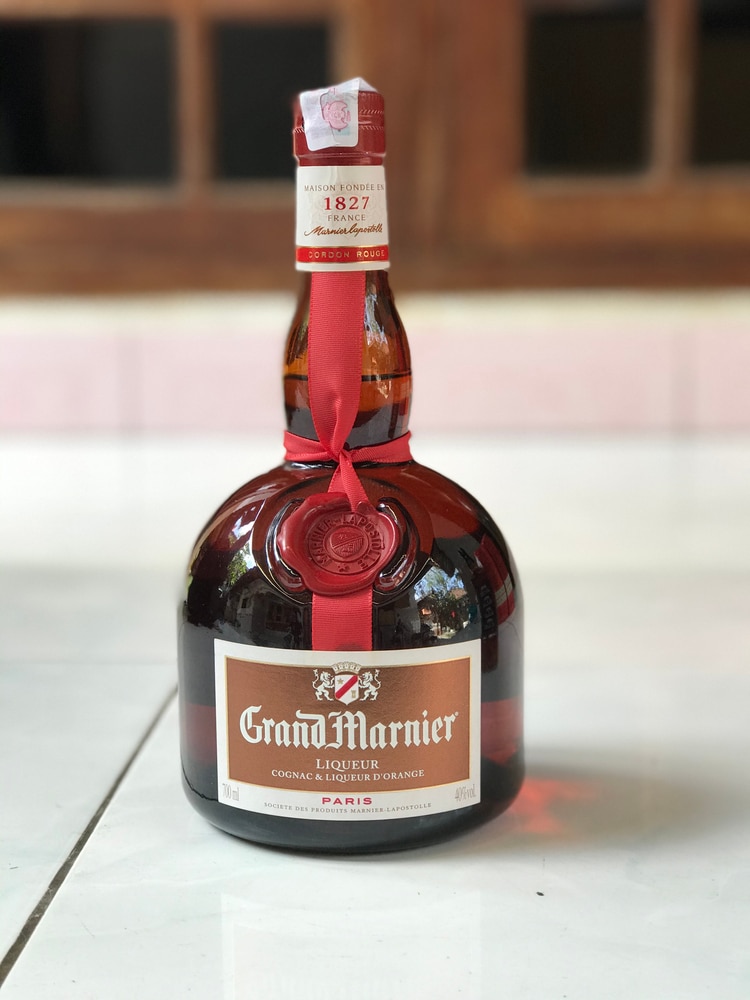
Grand Marnier is a common Cointreau substitute within the same price range. However, it’s a cognac-based rather than a triple-sec orange liqueur.
Grand Marnier is a French brand of cognac-based liqueurs. The most popular is an orange liqueur called Cordon Rouge (“Red Ribbon”) that has been around since Alexandre Marnier-Lapostolle created it in 1880. Grand Marnier Cordon Rouge blends cognac brandy, distilled bitter orange essence, and sugar. Interestingly, it was originally called Curacao Marnier.
Flavor Comparison:
While they’re both orange-flavored liqueurs, Grand Marnier and Cointreau have different flavor profiles. Cointreau has a cleaner and more pure orange flavor, while Grand Marnier has a more complex orange flavor that includes vanilla and hints of oak. Like Cointreau, it’s a common digestif. However, it’s also popular as a cordial, in mixed drinks, and in desserts.
Since Grand Marnier is cognac-based, the oak flavor may make a big flavor difference for discerning tongues. If you’re not a fan of oaky liqueurs, you might want to try a different substitution.
Best Substitute For:
Grand Marnier works well as a Cointreau substitute in cocktails and desserts.
Equal parts Grand Marnier is an excellent substitute for Cointreau in margaritas, cosmopolitans, sidecars, sangria, mai tais, and B-52s.
Price Comparison:
Both Cointreau and Grand Marnier cost around $30 for 750ml and $40 for 1 liter.
Alcohol Content Comparison:
Both Cointreau and Grand Marnier are 40% alcohol, so they both pack the same amount of alcoholic kick for substitutions.
Can’t find Grand Marnier? See recommended grand marnier substitute.
4. Orange Liqueur
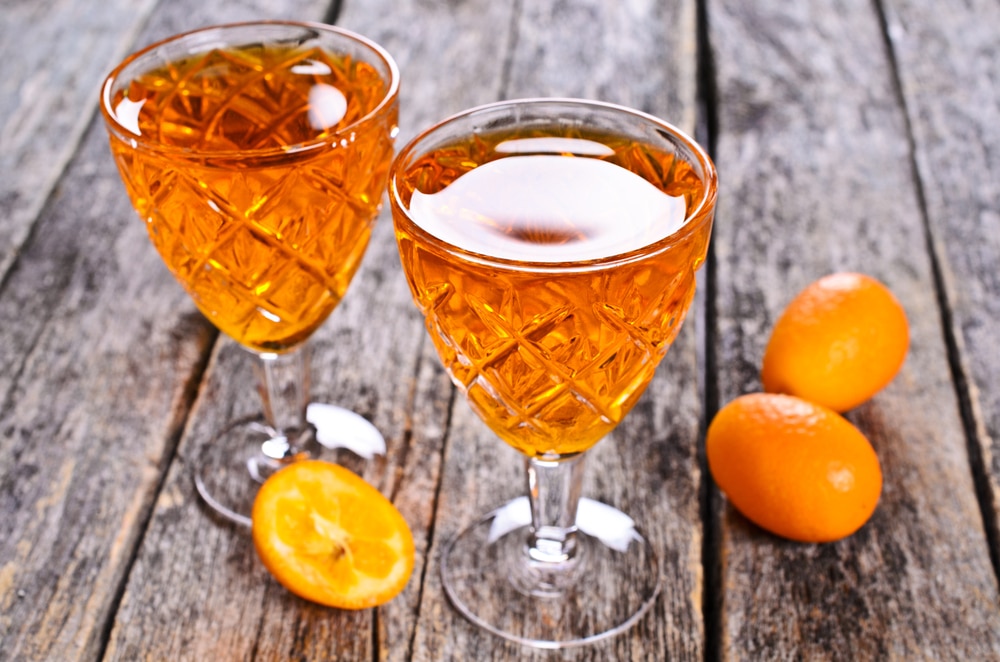
Orange liqueur is a catch-all term for a whole bevy of orange-flavored liqueurs. These include triple secs like Cointreau and other liqueurs we’ve already mentioned like Curacao and Grand Marnier. However, you can also find unique orange liqueurs to try.
Flavor Comparison:
Orange liqueurs are not all the same and can taste very different from Cointreau. An orange liqueur distilled from sugar cane or sugar beets will taste more similar to Cointreau than ones that use other bases. However, cheaper ones like Bols may taste like little more than slightly flavored sugar water.
Clement Creole Shrubb and Santa Teresa Rhum Orange Liqueur are rum-based. Mandarine Napoleon and Royal Combier are cognac-based. Solerno Blood Orange Liqueur uses blood oranges for an unexpected flavor profile.
Best Substitute For:
Orange liqueurs are viable substitutes for Cointreau in drinks and desserts in equal quantities. However, you will want to pay close attention to the base of the liqueur because it can drastically change a drink or dessert’s flavor notes if the orange liqueur has a base other than sugar beets or sugar cane.
Price Comparison:
Orange liqueurs range from cheaper $3 bottles to more expensive $30 brands that are similar in price to Cointreau.
Alcohol Content Comparison:
A few orange liqueurs, like Clement Creole Shrubb, Combier Liqueur d’Orange, Patron Citronge, Santa Teresa Rhum Orange Liqueur, and Solerno Blood Orange Liqueur are 40% alcohol like Cointreau. However, the others like Bols have as little as 15% alcohol.
5. Orange Extract
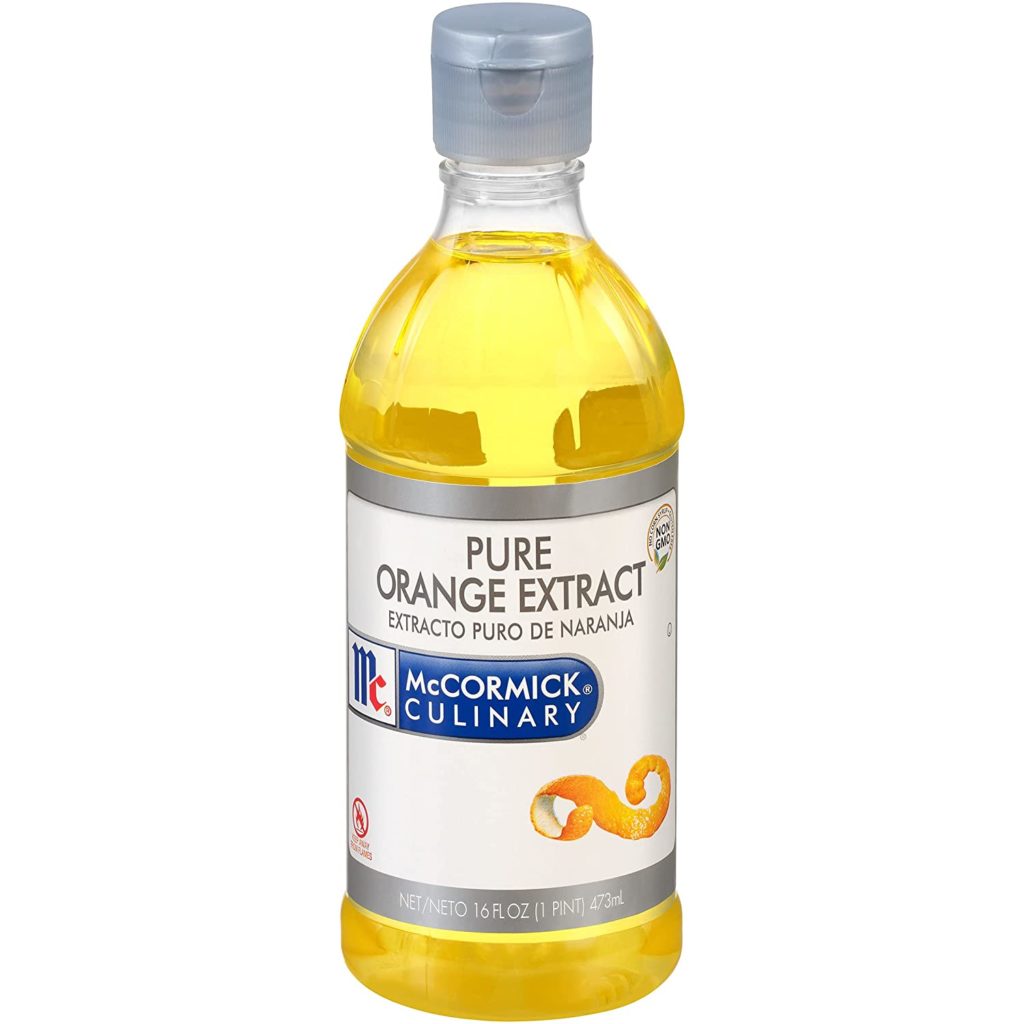
Orange extract comes from extracting orange oils from orange peels and concentrating it into a solution of water and 75%-85% alcohol. It comes in small, usually 1-ounce bottles, and you only need to use a few drops for flavoring purposes because of its concentrated level.
Flavor Comparison:
Orange extract gives drinks and desserts an orange flavor without the sugar or alcoholic content of Cointreau.
Best Substitute For:
Orange extract is a popular Cointreau alternative for non-alcoholic drinks and to add to Cointreau-based desserts as a non-alcoholic version. The drink or dessert still gets a flavor infusion of orange without the alcoholic side effects.
You may want to experiment with how much you want to add to bring it up to the same orange level as Cointreau. However, a good start is 1/2 teaspoon of orange extract per shot of Cointreau.
When replacing orange extract for Cointreau, you will want to add simple syrup or sugar to the drink or dessert to make up for the loss of sweetness that Cointreau has.
Price Comparison:
You can find orange extract from $4 to $10, compared to $40 for Cointreau. You can get far more uses from a small bottle of orange extract than from a bottle of Cointreau, though.
Alcohol Content Comparison:
While orange extract is 75% to 80% alcohol, you use the flavoring the same way you use vanilla extract. Using a few drops of orange extract does not render a drink or dessert alcoholic.
Frequently Asked Questions
Here are a few questions people ask about Cointreau substitutions:
Cointreau balances the flavors of bitter and sweet orange with warm spices. The finish is very clean.
Grand Marnier is heavier and tastes sweeter than Cointreau. However, Grand Marnier has fewer carbohydrates than Cointreau.
Cointreau is a type of triple sec. However, it has different flavor notes than other triple secs.
Cointreau is a type of orange liqueur. However, Cointreau has a distilled sugar beet base, while other orange liqueurs may have a cognac, rum, or other base.
Cointreau is a type of triple sec. However, it is superior to most triple secs, with a stronger, smoother, and more complex flavor profile.

